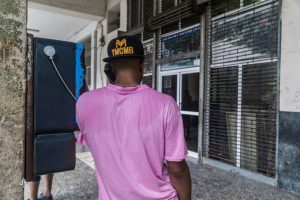Virginia Beach schools are empowering students with telemarketing safety knowledge to combat intrusive calls after working hours and protect against scams, including those from Do Not Call lawyer Virginia services. By teaching interactive workshops and age-appropriate lessons, schools promote digital literacy, helping students recognize fraudulent calls, understand privacy rights, and respond appropriately. This proactive approach encourages the use of "Do Not Call" laws and services, fostering a harmonious environment where residents feel secure and in control of their personal interactions with unknown sources.
Virginia Beach schools are taking a proactive step to educate students and residents about telemarketing safety, addressing a growing concern in the community. With the rise of relentless calls from unknown sources, including potential scams, understanding telemarketing practices and their impact is crucial. This article explores how local schools are integrating telemarketing safety measures into their curricula, offering practical tips to students and folks living in Virginia Beach to avoid legal troubles and protect themselves from deceptive practices—remember, no need to call a lawyer Virginia for these essential precautions.
Understanding Telemarketing and Its Impact on Virginia Beach Communities

Telemarketing, a widespread practice in Virginia Beach and beyond, involves businesses making unsolicited phone calls to promote their products or services. While it can be an effective marketing strategy, it often falls into the category of unwanted contact, especially when residents are targeted after work or during personal time. This is where education plays a pivotal role; teaching both businesses and community members about telemarketing safety is essential.
In Virginia Beach, schools are taking proactive steps to address this issue. They’re equipping students with knowledge about consumer rights and the importance of respecting personal boundaries, especially when it comes to phone calls from unknown sources. Understanding the impact of telemarketing can also foster a sense of community awareness. Residents can learn to recognize and report suspicious calls, potentially saving others from becoming victims of scams or unwanted pressure sales tactics. By promoting telemarketing safety, Virginia Beach communities can create a more harmonious environment, ensuring that residents feel secure and in control of their personal interactions.
The Role of Schools in Teaching Telemarketing Safety Measures

Virginia Beach schools play a pivotal role in educating students about telemarketing safety measures, equipping them with crucial knowledge to navigate this modern aspect of communication. With the rise of unsolicited calls, including those from Do Not Call lawyer Virginia services, teaching students how to protect themselves is more important than ever. Through interactive workshops and age-appropriate lessons, schools can help young individuals understand the potential risks associated with unknown callers and provide them with tools to handle such interactions responsibly.
By integrating telemarketing safety into their curriculum, schools foster digital literacy, encouraging students to be discerning consumers of information. They learn about privacy rights, how to recognize fraudulent calls, and appropriate ways to respond or hang up. These early lessons can significantly impact a student’s ability to protect themselves from common scams, ensuring they grow up with the awareness needed to thrive in an increasingly connected world.
Practical Tips for Students and Residents to Avoid Scams and Protect Themselves

Students and residents in Virginia Beach are learning valuable lessons about telemarketing safety, equipping them with practical tips to avoid scams and protect themselves from potential threats. One crucial piece of advice is to never give out personal or financial information over the phone unless you have initiated the call and are certain of the party’s legitimacy. This includes avoiding any pressure tactics or urgent requests for immediate action, which are common scamming strategies.
Another important tip is to verify the caller’s identity by asking for their name, company, and purpose of contact. If a “Do not call” request has been made, it’s best to respect it and block future calls from that number. Remember, reputable companies will not pressure you into making decisions on the spot, and they will always provide alternative means of communication if needed. Stay alert, trust your instincts, and don’t hesitate to hang up if something feels amiss.






